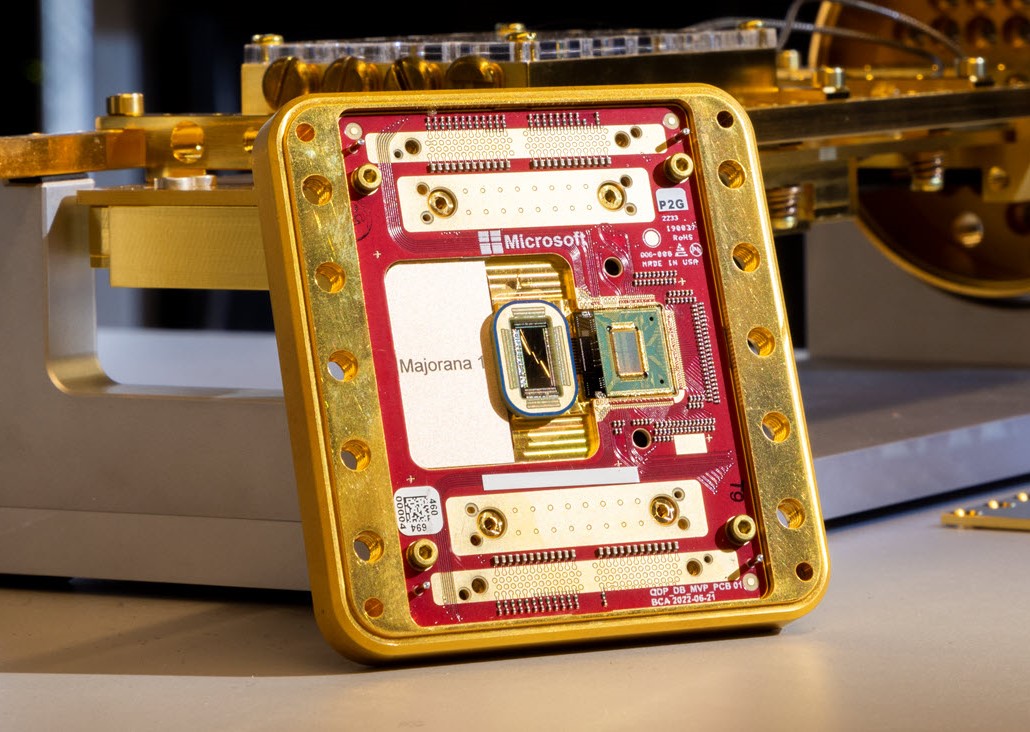Microsoft unveiled today its Majorana 1 quantum processor, introducing a groundbreaking “topological core” architecture that could accelerate the timeline for practical quantum computing from decades to years.
Why it matters: The breakthrough fundamentally changes quantum computing’s trajectory by solving the stability problems that have plagued previous approaches, potentially enabling systems with a million qubits on a single palm-sized chip.
Technical Innovation: The Majorana 1 introduces several breakthrough technologies:
- Novel topoconductor materials
- Atom-by-atom construction
- Digital qubit control system
Industry Impact: Microsoft’s approach represents a significant departure from competitors:
- Path to million-qubit systems
- Enhanced error resistance
- Simplified scaling potential
“We took a step back and said ‘OK, let’s invent the transistor for the quantum age. What properties does it need to have?’” explains Chetan Nayak, Microsoft technical fellow. “And that’s really how we got here.”
The chip’s development required creating an entirely new class of materials called topoconductors, built atom by atom with perfect alignment. “We are literally spraying atom by atom. Those materials have to line up perfectly. If there are too many defects in the material stack, it just kills your qubit,” says Krysta Svore, Microsoft technical fellow.
This precision engineering enables the chip to observe and control Majorana particles, exotic quantum entities that could provide more stable and scalable qubits than current approaches. The technology has already attracted attention from DARPA, which selected Microsoft as one of only two companies to advance to the final phase of its quantum computing program.
The potential applications span multiple industries. A million-qubit quantum computer could design self-healing materials for infrastructure, develop catalysts to break down microplastics, or optimize enzymes for agriculture in harsh climates.
Looking ahead, Microsoft believes the Majorana 1 architecture provides a clear path to quantum computers capable of solving meaningful, industrial-scale problems within years rather than decades.



























